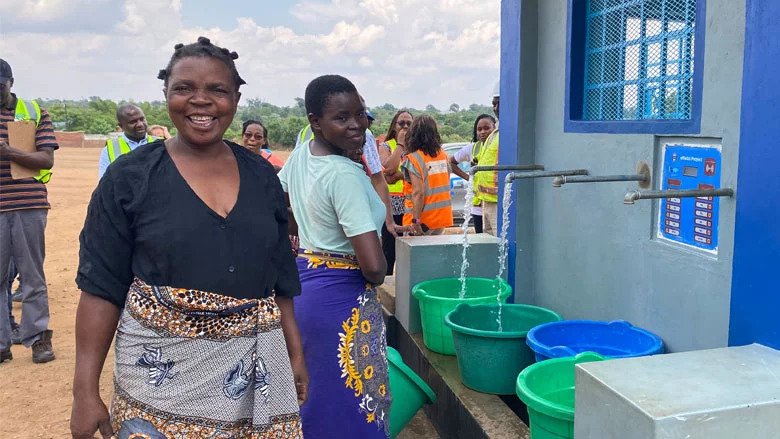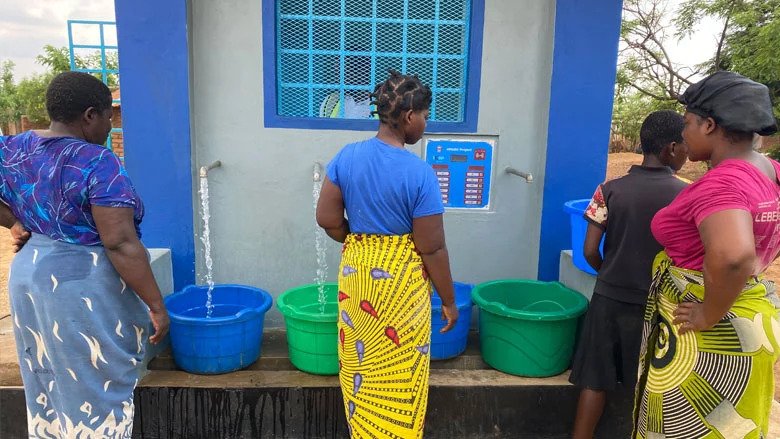Clean water kiosk in Lilongwe City, Malawi. Photo Credit: The World Bank
Society MalawiClean Water for the People, and the Economy
Malawi now has an extended water distribution network, thus improving the health and well-being of citizens and contributing to the economic development of individuals, especially women.
“I was a stay-at-home mother with two children to support. Getting an income by managing this communal tap has been life-changing for me,” explains Faith Kaulalo, a communal water point operator. Today, she makes at least K44,000 ($40) every month, a wage approved by the Water User Association.
In 2017, the Lilongwe Water Board (LWB) implemented the Lilongwe Water and Sanitation Project, disserving some 350,000 people by upgrading the water supply, increasing hours of supply, and improving pressure and reliability. Almost 370 km of new pipes have been installed for the benefit of Lilongwe City, with a 187.2 km stretch of pipeline connecting unserved areas. Now, 14,700 households have access to 60 new water kiosks. Long distances and waterborne diseases are no longer a worry for those citizens. Upon discovering that women were underrepresented in its 2019 gender assessment, LWB decided to develop a women’s chapter. Through a mentorship and scholarship program, in partnership with local universities, women can hope to have access to skilled occupations and managerial and leadership positions. The initiative led to an increase in the number of female employees, from 69 in 2019 to 104 in 2022.





